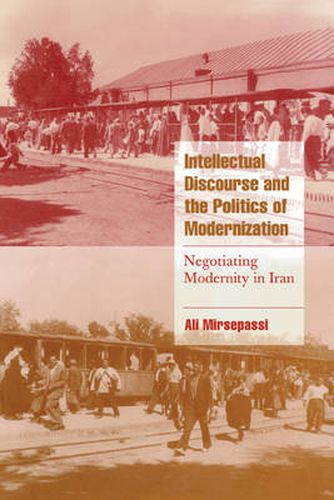Readings Newsletter
Become a Readings Member to make your shopping experience even easier.
Sign in or sign up for free!
You’re not far away from qualifying for FREE standard shipping within Australia
You’ve qualified for FREE standard shipping within Australia
The cart is loading…






In this thought-provoking study, Ali Mirsepassi explores the concept of modernity, exposing the Eurocentric prejudices and hostility to non-Western culture that have characterized its development. Focusing on the Iranian experience of modernity, he charts its political and intellectual history and develops a new interpretation of Islamic Fundamentalism through the detailed analysis of the ideas of key Islamic intellectuals. The author argues that the Iranian Revolution was not a simple clash between modernity and tradition but an attempt to accommodate modernity within a sense of authentic Islamic identity, culture and historical experience. He concludes by assessing the future of secularism and democracy in the Middle East in general, and in Iran in particular. A significant contribution to the literature on modernity, social change and Islamic Studies, this book will be essential reading for scholars and students of social theory and change, Middle Eastern Studies, Cultural Studies and many related areas.
$9.00 standard shipping within Australia
FREE standard shipping within Australia for orders over $100.00
Express & International shipping calculated at checkout
In this thought-provoking study, Ali Mirsepassi explores the concept of modernity, exposing the Eurocentric prejudices and hostility to non-Western culture that have characterized its development. Focusing on the Iranian experience of modernity, he charts its political and intellectual history and develops a new interpretation of Islamic Fundamentalism through the detailed analysis of the ideas of key Islamic intellectuals. The author argues that the Iranian Revolution was not a simple clash between modernity and tradition but an attempt to accommodate modernity within a sense of authentic Islamic identity, culture and historical experience. He concludes by assessing the future of secularism and democracy in the Middle East in general, and in Iran in particular. A significant contribution to the literature on modernity, social change and Islamic Studies, this book will be essential reading for scholars and students of social theory and change, Middle Eastern Studies, Cultural Studies and many related areas.